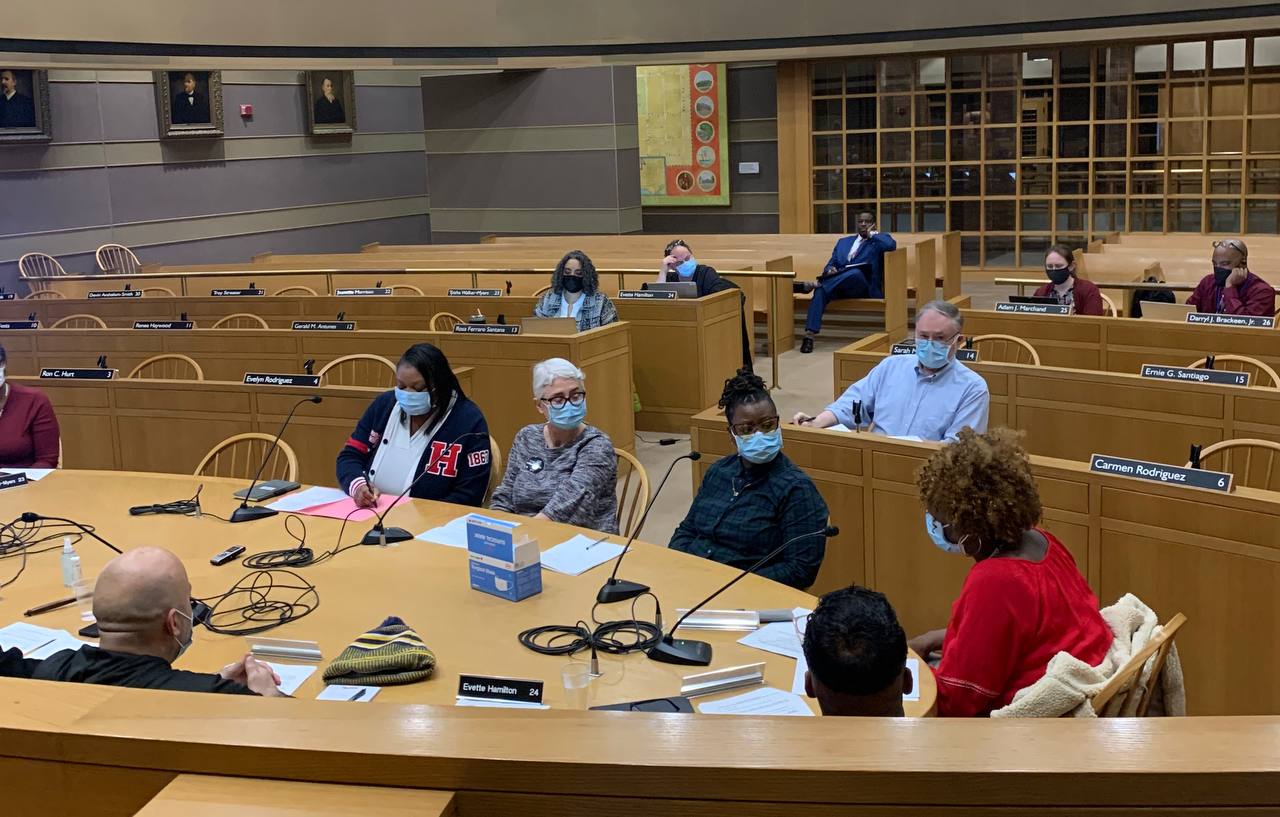New Haven teachers’ union and Board of Education reach tentative agreement on contract
Representatives from both the city’s Federation of Teachers and the Board of Education introduced their tentative agreement before the Board of Alders Finance Committee Monday night.

Yurii Stasiuk, Contributing Photographer
Salary increases, continued insurance coverage for retired teachers and monthly meetings with the city’s Human Resources Department are among the agreements that might appear in the New Haven teachers union contract.
The Board of Education and the New Haven Federation of Teachers reached a deal to renew the New Haven Public School teachers contract in November. The Aldermanic Finance Committee recommended to the full Board of Alders that they discharge and vote upon the teacher’s union contract at their next regular meeting on Feb 21. If approved by the full Board of Alders, this contract will be in place for the next three years, with increased teacher salaries and improved working conditions aimed at combating the city’s teacher shortage.
On Monday, the Board of Alders Finance Committee held a public hearing to discuss the contract. The Committee heard public testimony on the collective bargaining agreement between New Haven’s Board of Education and the New Haven Federation of Teachers. The hearing also focused on the city’s monthly finance reports from September through December 2022 and restructuring one vacant city administration position.
During the hearing, Keisha Hannans, assistant superintendent of schools, represented the Board of Education, while Leslie Blatteau, president of the federation of teachers, represented the union. Both Hannas and Blatteau testified in favor of approving the agreement.
“When we sat down to negotiate, we knew we needed to make our teacher salaries competitive,” Hannans said at the meeting. “We hope [this agreement] will help to close the [educational opportunities] gap.”
According to Blatteau, the negotiations started in March. Over the course of a year, the union surveyed around 1,000 members, created working groups and collected data to most effectively advocate for teachers’ interests.
Besides wage increases, two main issues on the table were working conditions in the school and teacher retention. In October, there was a shortage of 81 teachers in NHPS.
“We were focused on working conditions because we know our working conditions are our students’ learning conditions, so anything that we’re asking for our working conditions would benefit students,” Blatteau said. “We were focused on teacher retention because we know the disruptions that can be caused by resignations.”
The contract will allow teachers who choose to substitute for other classes during their regular “preparation periods” to be paid for substituting. Teachers typically use “preparation periods” to prepare for their own classes — and currently, are not getting paid for it. This extra pay, Blatteau told the News, will help schools to deal with teacher shortages.
This deal also secures the union a monthly meeting with the city’s Human Resources Department, which is responsible for recruitment and retention as well as family and medical leaves. Blatteau said in an interview with the News that these meetings will help ensure cooperation as NHPS deals with long-term recruitment and retention issues.
Blatteau noted that the agreement introduces gender-neutral terminology into the contract. While this terminology might not impact day-to-day working conditions, she said, it relays “a clear message to our members and to the community” about New Haven’s commitment to inclusivity.
The contract also extends by two years the agreement between the Board of Education and the union to cover the health insurance for retired teachers that was set to expire with the old contract. With this contract, retired teachers would continue to be covered until they reach age 65 and are eligible for Medicare.
“Often, we are told that teaching is a calling, so we shouldn’t focus on the money,” Fana Hickinson, a teacher at New Haven Academy, said during the hearing. “But I’m here today to talk about the money and about the livelihoods of the professionals who care for, mentor and educate our children.”
Hickinson said that her teaching career had given her purpose. Still, after 10 years of experience, she said she makes significantly less than all her peers at other schools and classmates who entered other professions.
She added that she could only secure housing because she has a partner to split the cost with, but said she believes it should not be that way. In order to attract more college graduates to the profession, Hickinson said the career needs to be both fulfilling and sustainable.
“We are not living lavishly. Secure housing is a right,” Hickinson said. “Current and future teachers need to know that this profession is not a dead end or pitstop.”
The negotiated agreement specifies teachers’ wages for the next three academic years. In the 2025 to 2026 academic year, entry-level teachers with bachelor’s degrees will make $51,421 annually — compared to $45,357 in 2022 to 2023.
Similarly, teachers across all levels will experience wage increases over the next three years. But Blatteau said that those with lower- or medium-level experiences will benefit the most from increases incorporated in the contract.
Blatteau said that the higher wages will help many teachers who were considering leaving before a tentative agreement was signed to stay in school.
“We’re not going to be able to recruit enough teachers to meet our needs — we have to retain our teachers,” Blatteau told the News. “[Teachers] looked ahead, and they saw what we were able to negotiate for our members, and they reassured us that they will commit to staying in New Haven, which is exactly why we fought for those raises.”
Mayor Elicker is set to introduce the annual budget recommendations by March 1.







